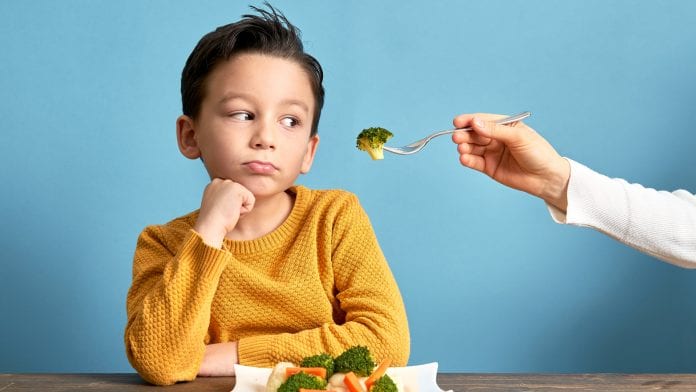
New resources that hope to encourage children to eat vegetables have been launched.
The resources, based on the evidence that children who are exposed to pictures of vegetables are more likely to eat them, have been launched as part of the See & Eat project to try and help children to eat vegetables.
The project an initiative funded by European Institute of Innovation and Technology (EIT) Food, led by Professor Carmel Houston-Price at the University of Reading and supported by the British Nutrition Foundation (BNF).
Child obesity is a major crisis and estimates of the number of overweight infants and children in the WHO European Region rose steadily from 1990 to 2008. The WHO Europe notes that over 60% of children who are overweight before puberty will be overweight in early adulthood. Child obesity can often lead to diabetes.
See & Eat
New eBooks, designed to help parents familiarise their young children with a greater variety of vegetables, are now available to download for free from the See & Eat Parent Resource website.
There are also numerous other resources available, including meal planners, shopping lists, and family-friendly recipes, developed to support parents and carers in encouraging their children to eat more vegetables.
The ‘See & Eat’ eBooks each tell the farm to fork journey of a different vegetable and can be personalised with pictures, videos and text. The eBooks have been developed based on research showing that hard-copy books about vegetables help to familiarise children with new foods and, ultimately, help them to eat a wider variety of fruit and vegetables.
Interacting with eBooks
The project team is currently conducting a study to understand whether extra interactivity and personalisation through eBooks, such as adding photos or videos of shopping for, preparing or eating vegetables, can support children to become even more receptive to new vegetables.
Dr Natalie Masento, a collaborator on the project at the University of Reading, said: “It is well established that children often need 10-15 exposures to new foods before they accept them into their diets.
“But, having to prepare different vegetables on more than ten occasions, without them being eaten, can be very frustrating – and costly – for many parents. Research has shown, however, that children’s acceptance of new foods can be boosted purely by a food’s visual familiarity, for instance by looking at pictures.
“The theory of food familiarisation through picture books is well accepted and we hope that, through easy-to-access eBooks, even more parents will be able to use this tool to support their children to eat their vegetables.
“Our current study – exploring the effects of personalisation and interactivity on children’s receptiveness to new vegetables – is looking positive and we’re excited to see the results next year.”










